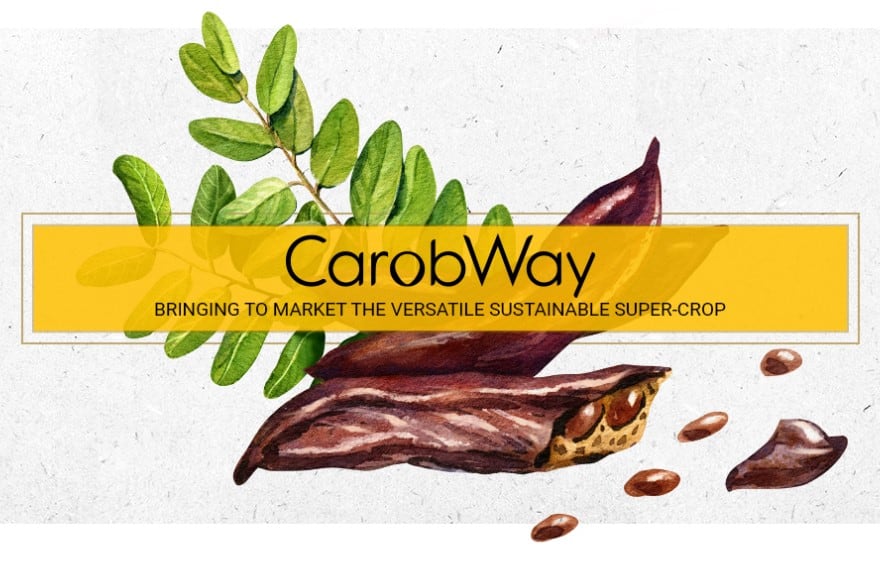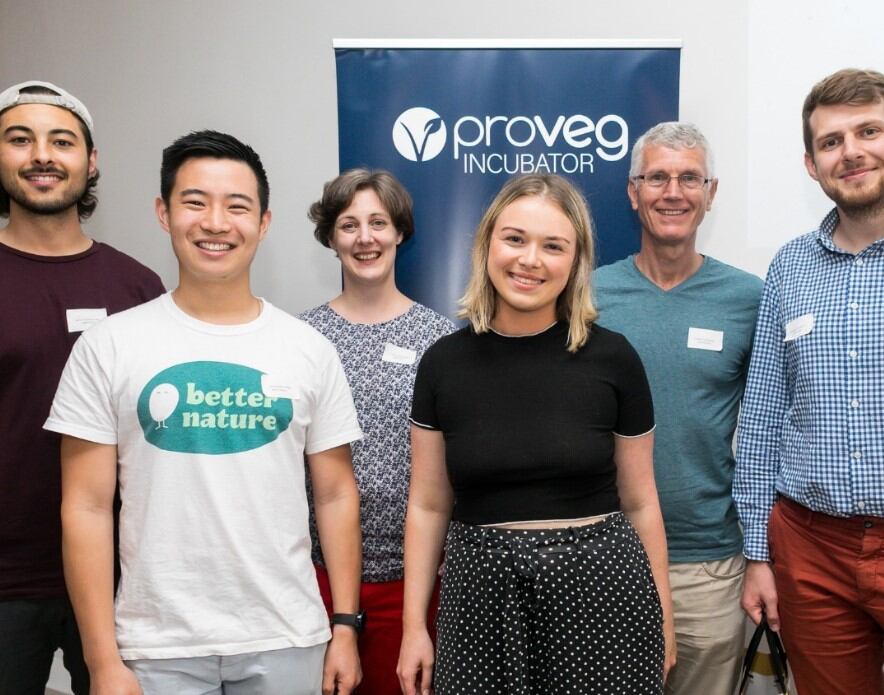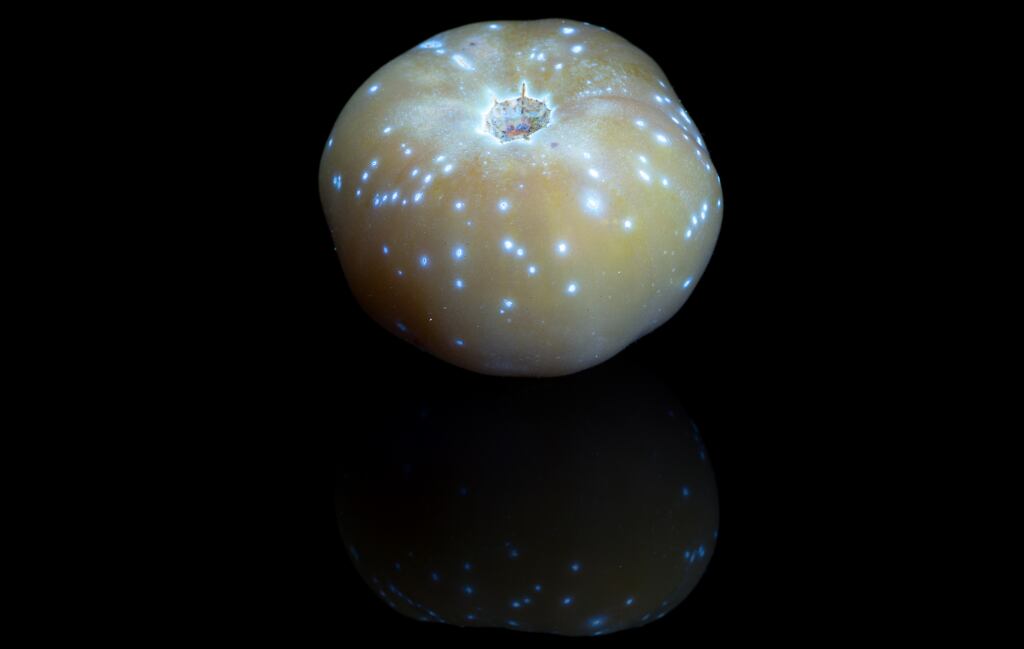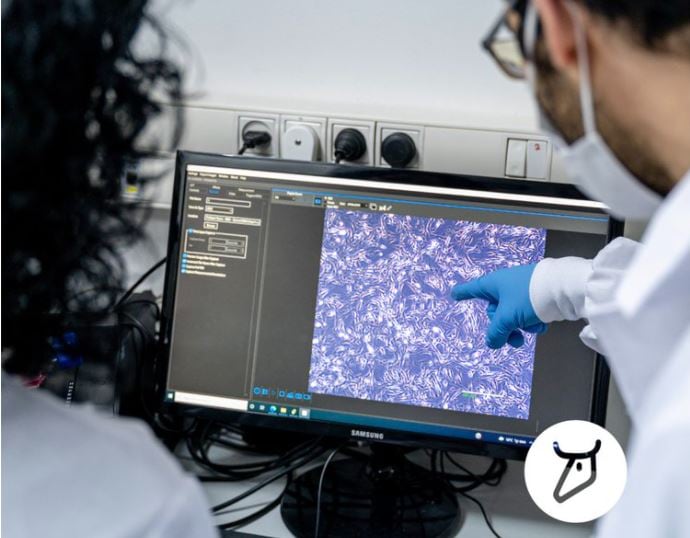
The crop has been around since biblical times and now three entrepreneurs are looking to cultivate the food for the masses using advanced agriTech to grow the trees more intensively and efficiently.
The carob (Ceratonia siliqua L.) fruit pod consists of around 90% pulp and 10% seeds by weight at full maturity. Its seed is considered the most valuable part of the pod, used industrially for locust bean gum (LBG) production, a common natural ingredient.
In addition, carob sugars and fibres are widely used in the food industry mainly in the form of carob powder.
“The seeds have what we call germ flower, about 55% protein,” explains Udi Alroy, CEO and Co-founder of CarobWay, who was speaking to NutraIngredients at the recent Vitafoods conference. “The protein is a functional gluten-free protein and can be used in variety of applications.”
The fruit itself which is about 90% of the carob has a wonderful profile of sugars. When you separate the liquid phase into the pulp, then you get a wonderful sugar base, a low-GI sucrose base.
“Then you have the carob fibres that are well known for gut health. So, if you have any issues about your gut health, when you eat carob it's usually relaxing the gut health.
“It has to do with the polyphenols,” Alroy adds. “You will feel the dryness in the mouth because they are similar to ones found in red wine, but the functionality of the tannins is very different.
Low-GI sugar
Founded in 2020, Carobway, based in Tel Aviv, Israel aims to offer the carob to a variety of markets based on different food applications and uses.
For example, carob’s natural sweetener properties mean it is suitable for beverages. The low-GI sugar provides energy and is a good fit for diabetics or those with digestive health issues.
Carob’s functional protein can enhance a variety of food and beverage products while its fibres can be used in cereals and bars.
The idea for the business was the brainchild of Alroy, who was seeking a sustainable super-crop that could be grown in dry weather with almost no water to address the strained resources of our climate-stressed planet.
Working on a daily basis with growers and agriculture organisations, he eventually discovered the carob crop.
Together with his partners, he set up its vertically integrated system dedicated to growing and commercialising carob and carob-centred products.
At the height of the COVID-19 pandemic, the team settled on a small plot of land in the Upper Galilee region that became the first modern carob grove.
It combines Israeli agricultural know-how and innovative technology for an intensive, high-yield cultivation of carob trees optimising land use and applying mechanised harvesting methods.
10-year commitment
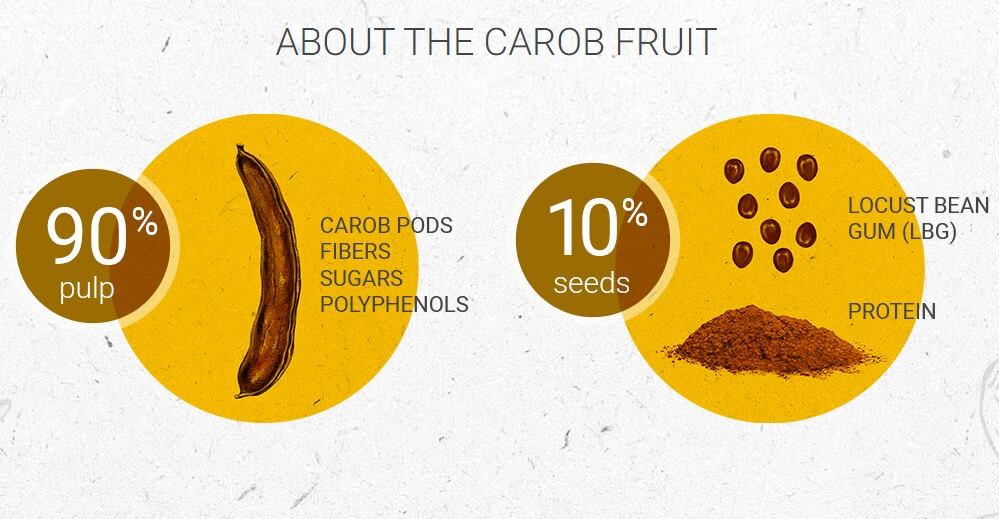
“We're about a year and a half old as a company,” explains Alroy. “But we have to commercialise before we launch our company.”
“So, we have a 10-year commitment from one of the leading companies in the market to buy all carobs produced. They are committed to buying the product, we are committed to them.
“The whole idea of Carabway is to stabilise the supply chain. It's not a price issue. it's just to stabilise it.
“So, they're committed to consuming everything, we're committed to supply them. So, we are going to the cultivars and agricultural people, and we tell them, you grow our seedlings, we buy all the produce, okay? This is something that just doesn't happen.
“We are committed because everybody is committed in the long haul. And it's a new crop. We have a lot of carob forests in Israel, but we don't have intensive cultivation.
“So, at that point, once we have the first agreement or we have another one and we have the first agreement, we said OK, we can open a company and start to do first of all, let's cultivate the seedlings.
“So, we got six top nurseries in Israel to develop the trees that we wanted them, and these characters are highly fruitful from the yield but also are very focused on the industrial use of the product or pay high seed high sugar high fibres, polyphenols whatever you need.”

